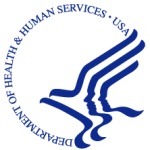- Industry: Government
- Number of terms: 33950
- Number of blossaries: 0
- Company Profile:
United States Department of Health and Human Services, Radiation Emergency Medical Management
In medicine, a medical problem that occurs during a disease, or after a procedure or treatment. The complication may be caused by the disease, procedure, or treatment or may be unrelated to them.
Industry:Health care
One of a pair of organs in the chest that supplies the body with oxygen, and removes carbon dioxide from the body.
Industry:Health care
A type of acupuncture in which a microwave device is attached to an acupuncture needle to give microwave radiation at an acupuncture point.
Industry:Health care
A type of treatment in which body tissue is exposed to high temperatures to damage and kill cancer cells or to make cancer cells more sensitive to the effects of radiation and certain anticancer drugs. Also called microwave thermotherapy.
Industry:Health care
Cancer that forms in tissues of the lung, usually in the cells lining air passages. The two main types are small cell lung cancer and non-small cell lung cancer. These types are diagnosed based on how the cells look under a microscope.
Industry:Health care
A type of treatment in which body tissue is exposed to high temperatures to damage and kill cancer cells or to make cancer cells more sensitive to the effects of radiation and certain anticancer drugs. Also called microwave therapy.
Industry:Health care
A severe inflammation of the lungs in which the alveoli (tiny air sacs) are filled with fluid. This may cause a decrease in the amount of oxygen that blood can absorb from air breathed into the lung. Pneumonia is usually caused by infection but may also be caused by radiation therapy, allergy, or irritation of lung tissue by inhaled substances. It may involve part or all of the lungs.
Industry:Health care
A surgical procedure in which tissue or an organ is transferred from one area of a person’s body to another area, or from one person (the donor) to another person (the recipient).
Industry:Health care
A hormone found in the brain, platelets, digestive tract, and pineal gland. It acts both as a neurotransmitter (a substance that nerves use to send messages to one another) and a vasoconstrictor (a substance that causes blood vessels to narrow). A lack of serotonin in the brain is thought to be a cause of depression. Also called 5-hydroxytryptamine.
Industry:Health care
Sudden extreme anxiety or fear that may cause irrational thoughts or actions. Panic may include rapid heart rate, flushing (a hot, red face), sweating, and trouble breathing.
Industry:Health care
